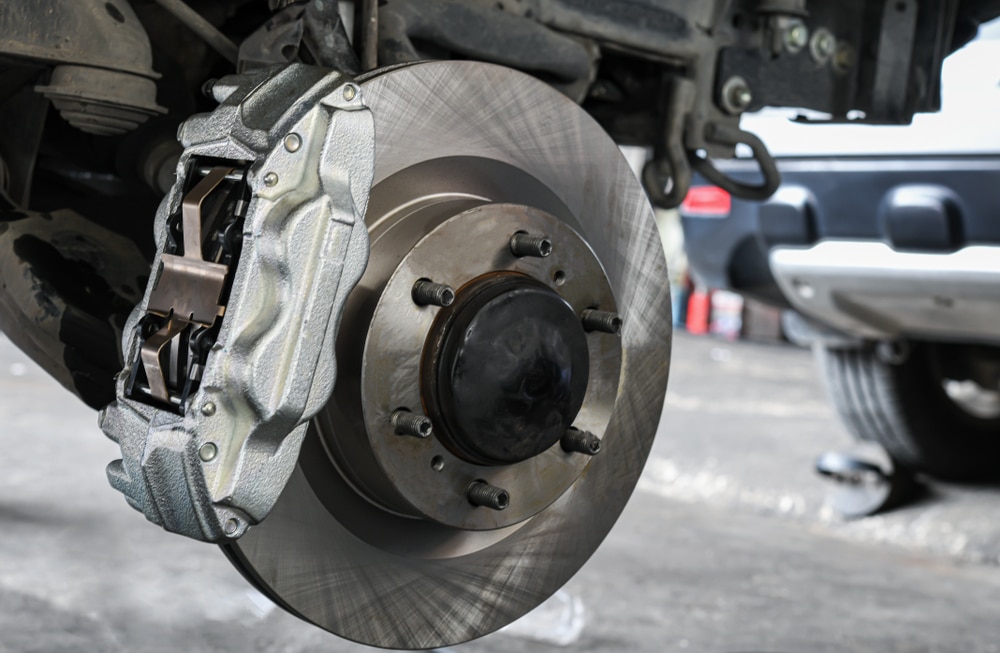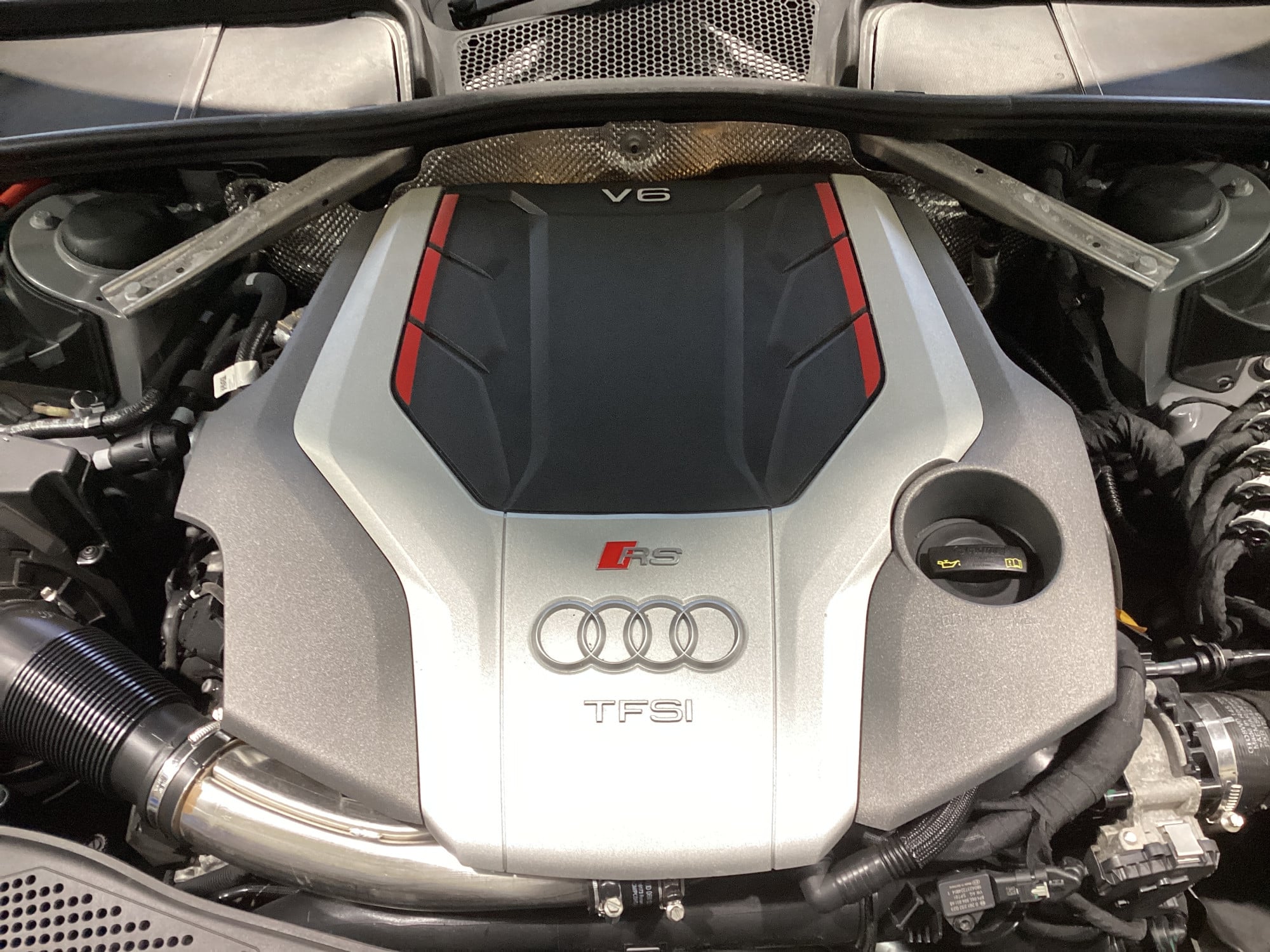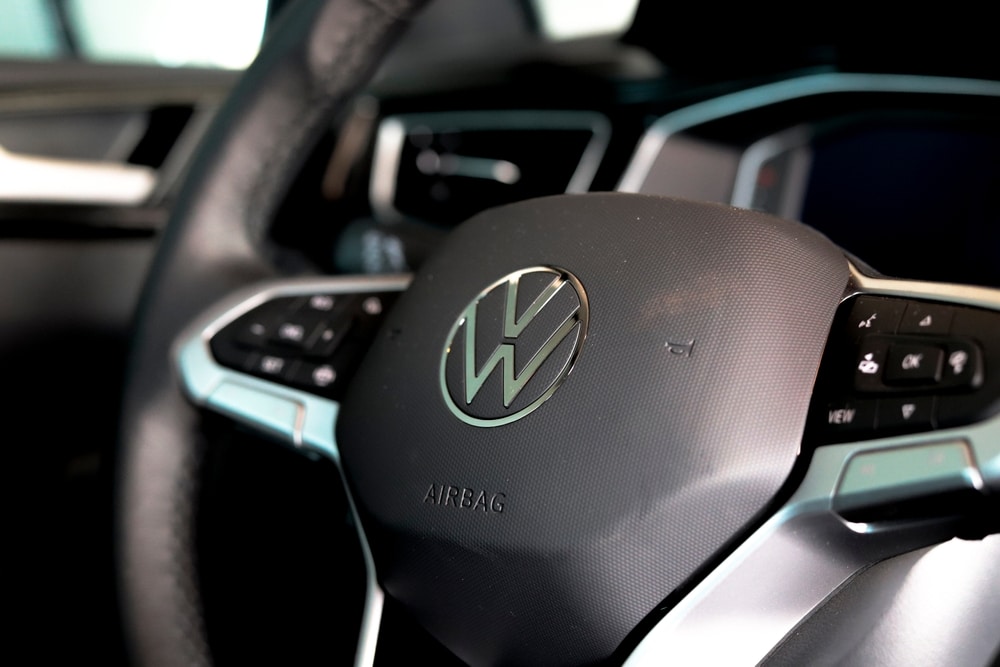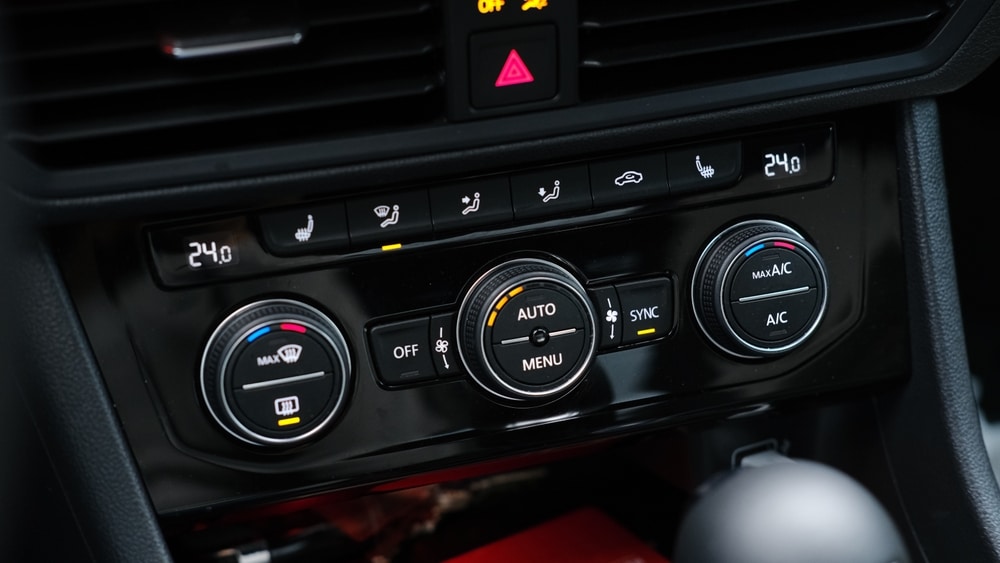Brake Discs
Your brake discs are constantly working to slow the car safely, but when wear begins, the signs aren’t always obvious. A slight vibration, a change in pedal feel, or longer stopping distances can all point to trouble, often before anything looks wrong from the outside.
At RS Autotechnik in Dursley, we handle brake disc and pad replacements for drivers across Bristol, Tetbury and Gloucester. Our technicians are trained to catch early disc wear and prevent it from turning into wider braking system damage.
We’ve earned a {{average-rating}} star Google rating from {{review-count}} satisfied customers, and we’re proud to be trusted with safety-critical repairs.
In this guide, we’ll explain how brake discs work, what causes them to fail, and the signs that suggest it’s time to have them checked.
How Brake Discs Bring You To A Stop
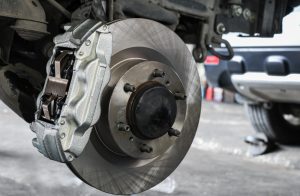
Brake discs are bolted directly to the wheel hub, which means they spin at the same rate as the wheels. When you press the brake pedal, hydraulic pressure forces the pads onto the discs. That contact creates friction, and that friction is what slows the car down.
This process generates intense heat, so brake discs are made from cast iron, a material chosen for its ability to handle high temperatures without losing structural integrity. Most modern cars have discs on all four wheels, with the front pair doing the bulk of the work due to weight transfer.
To avoid overheating, discs are designed to cool rapidly. Some are vented to help draw in air, while others rely on clean surfaces and precision fitment to stay effective stop after stop.
At RS Autotechnik in Dursley, we check brake disc condition as part of every inspection, front and rear. We don’t just measure thickness. We check for hotspots, heat damage, cracks, and any signs of wear that might affect braking performance.
If discs become worn or uneven, you’ll often notice a loss of stopping power, pulsing under the pedal, or vibration. And the longer it’s left, the more likely it is to affect the rest of your braking system.
Exploring Different Brake Disc Types
Brake discs come in several types, each suited to different vehicles and driving styles. The right fit isn’t just about size; it affects performance, heat management, and overall braking response. At RS Autotechnik in Dursley, we always check the manufacturer’s specification before fitting any brake disc replacement.
Solid discs are typically used on the rear wheels of smaller or lighter cars. They consist of a single, flat piece of cast iron and are effective in lower heat conditions.
Vented discs, more common at the front, feature an air channel between two disc faces. This design helps move heat away from the braking surface more efficiently, reducing the risk of fade during heavy use.
Some discs also feature drilled holes or machined grooves, designed to expel heat, gas, and water. These performance-enhancing features are found on more powerful vehicles or in situations where braking intensity is high.
You may also encounter discs made from ceramic or carbon fibre composites, advanced materials reserved for high-performance or premium vehicles due to their strength and superior heat resistance.
At RS Autotechnik, we only fit discs that match the original design and thermal properties of your vehicle. And when it comes to fitting, we don’t cut corners; every disc is torqued to spec and aligned with care to maintain safe, balanced braking.
When Brake Discs Wear Out Sooner Than They Should
Brake discs don’t wear at a fixed rate. How long they last depends on your driving style, the conditions your vehicle is exposed to, and how well the braking system is maintained. At RS Autotechnik in Dursley, we often replace discs earlier than expected due to the following issues:
Frequent high temperatures
Braking heavily on steep roads or in stop-start traffic creates a lot of heat. Over time, this can distort the disc or cause it to develop hairline cracks that reduce its effectiveness.
Aggressive braking
Late, hard braking creates more friction than necessary. It accelerates wear, and if repeated often, it can lead to uneven surface wear or even heat spots that affect performance.
Pads not bedded in correctly
After fitting new pads, it’s important to avoid harsh braking for the first 200 miles. If not, pad material can transfer unevenly to the disc surface, leading to vibration and thickness variation.
Calliper problems
A sticking calliper can cause the brake pads to drag against the disc, even when you’re not braking. This results in constant friction, which wears both parts faster than usual.
Contamination between disc and hub
Rust, debris or even minor corrosion on the hub surface can prevent the disc from sitting flush. This leads to poor contact with the pad and irregular wear patterns.
Poor installation
If wheel bolts aren’t tightened evenly or to the correct torque, the disc can become distorted under load. This kind of distortion isn’t always visible, but it often shows up as vibration or pulsing when braking. At RS Autotechnik, we always use calibrated torque wrenches and follow manufacturer settings to ensure the discs are correctly fitted every time.
Low-grade components
Discs that don’t meet OEM standards are more likely to underperform under heat and stress. That’s why we only use high-quality parts that meet your vehicle’s original spec.
If your braking feels different or you’re noticing unusual feedback through the pedal, it’s worth having your discs checked before the issue spreads to other parts of the system.
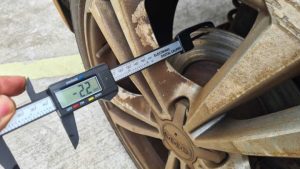
The Early Signs That Point to Worn Brake Discs
Brake discs rarely wear out overnight, but once issues begin, they often become progressively worse. At RS Autotechnik in Dursley, we regularly inspect vehicles where the early warning signs were missed or ignored. Here’s what to look out for:
Brake pedal pulsing
If the pedal feels like it’s vibrating or pulsing underfoot, especially when braking at speed, it could be a sign of disc warping or uneven wear.
Unusual noises
A high-pitched squeal may suggest the disc surface has become rough or glazed. A louder grinding sound could mean the pads are worn down and scoring the disc directly.
Visible surface damage
Looking through your alloys, you may notice visible grooves, cracks or even blue/purple heat spots on the disc. These are signs that the disc has been exposed to excessive stress or heat.
Chemical smells after braking
If there’s a sharp, synthetic smell after heavy braking, such as when towing, descending hills, or in traffic, it could mean the disc is overheating or a calliper is sticking.
At RS Autotechnik, we investigate every symptom in detail. If the issue is with the discs, we’ll show you what’s gone wrong and explain what needs replacing. And if the problem lies elsewhere, like with the pads or callipers, we’ll get that sorted, too.
Want to learn more? Have a look at our other blogs on Brake Pads and The Braking System Explained to understand more about how all the parts work together.
The Dangers of Putting Off Brake Disc Replacement
Once a brake disc starts to fail, the rest of your braking system won’t be far behind. What begins as mild wear can quickly lead to performance loss, safety risks, and more expensive repairs if not addressed in time.
Reduced braking performance
Worn or heat-damaged discs don’t absorb and release heat properly. This can lead to brake fade, where the system feels normal at the pedal but struggles to stop the car quickly.
Disc failure under load
If cracks or warping are left unchecked, the structural integrity of the disc weakens. Under heavy braking, this could result in disc failure, particularly at higher speeds.
Vibration and instability
An uneven disc surface causes the pads to grip inconsistently. You may feel vibration through the steering wheel or pulsing in the pedal, making the car feel less stable when slowing down.
Overheated brake fluid
Excess heat from the disc can raise brake fluid temperatures to boiling point. When that happens, vapour bubbles form, making the fluid compressible, meaning the pressure from your foot doesn’t transfer properly to the brake pads and discs. The result? A soft pedal and a dangerous drop in stopping power.
Damage to connected components
Worn discs can accelerate wear in other areas, including the pads, callipers, and even the wheel bearings or ABS sensors. What could have been a quick job becomes a far more complex fix.
At RS Autotechnik, we don’t take risks when it comes to brakes. If a disc needs replacing, we’ll explain why clearly and fit it properly using the right parts and tools.
Book a Brake Disc Check at RS Autotechnik in Dursley
If your brakes feel different, whether it’s a vibration, longer stopping distances, or an unusual smell after braking, it could be time to get your discs checked. Ignoring the signs won’t make them go away, and the longer you wait, the more it can affect the rest of the system.
At RS Autotechnik in Dursley, we carry out detailed inspections on front and rear brake discs and pads. We check for heat damage, surface wear, thickness, and correct fitment, always comparing your components to the manufacturer’s recommended limits.
If replacement is needed, we only install high-quality, OEM-matching discs and pads. Every bolt is torqued to spec using calibrated tools, ensuring the job is done right the first time.
We’re proud to support drivers across Dursley, Bristol, Tetbury and Gloucester with trusted, safety-first brake servicing, backed by a 12-month parts and labour guarantee. And with courtesy cars available, you can stay mobile while we work.
We have a {{average-rating}} star Google rating from {{review-count}} satisfied customers, and we’re here to help.
📞 Call RS Autotechnik on 01453 796345 to book your brake check today.
